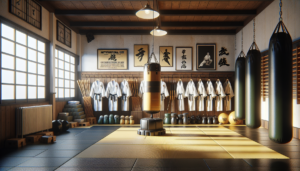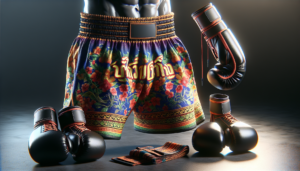Introduction to Samurai and Zen Buddhism
The samurai culture of Japan has long been a subject of fascination, known for its unique blend of martial prowess, honor, and spiritual discipline. Central to the development of samurai culture was the influence of Zen Buddhism, which shaped not only their philosophy and way of life but also the arts that flourished during this period. The relationship between the samurai and Zen Buddhism created a distinctive cultural landscape that left an indelible mark on Japanese history.
Historical Background of the Samurai
The samurai emerged as a distinct warrior class in feudal Japan, serving as the military nobility in the service of powerful lords known as daimyo. These skilled warriors were bound by a code of conduct known as bushido, which emphasized values such as loyalty, courage, and self-discipline. The samurai played a crucial role in maintaining order and defending the interests of their lords in a society characterized by political instability and frequent warfare.
The Role of Zen Buddhism in Samurai Life
Zen Buddhism, a branch of Mahayana Buddhism that originated in China, found its way to Japan and gained popularity among the samurai class. The teachings of Zen, which emphasized meditation, self-discipline, and the attainment of enlightenment through direct experience, resonated with the samurai’s way of life. Zen practice helped the samurai cultivate mental clarity, emotional control, and a sense of detachment, qualities essential for success in battle and in life.
The influence of Zen Buddhism on the samurai was not limited to the battlefield; it permeated every aspect of their lives, shaping their philosophy, aesthetics, and cultural pursuits. The samurai embraced Zen as a means of personal and spiritual cultivation, seeking to align their actions with the principles of bushido and to live a life of honor and purpose.
Arts Flourished with the Samurai Because of Zen Buddhism
Under the influence of Zen Buddhism, various art forms flourished within the samurai culture, reflecting the aesthetic sensibilities and spiritual values of the warrior class. These arts served not only as means of self-expression but also as tools for cultivating mindfulness, discipline, and inner peace.
The Tea Ceremony
The Japanese tea ceremony, known as “cha-no-yu,” became an integral part of samurai culture, influenced by Zen Buddhist principles. The tea ceremony was a highly ritualized and meditative practice that emphasized simplicity, humility, and mindfulness. Samurai would gather in specially designed tea rooms, engaging in the preparation and sharing of tea as a means of fostering social bonds and cultivating a sense of tranquility.
The tea ceremony was not merely a social event but a spiritual practice that required discipline, focus, and attention to detail. The precise movements, the appreciation of the tea utensils, and the quiet contemplation all served to promote a state of heightened awareness and inner calm, aligning with Zen teachings.
Calligraphy and Painting
Calligraphy and painting were highly esteemed arts among the samurai, reflecting the Zen emphasis on simplicity, spontaneity, and the beauty of imperfection. Samurai would dedicate themselves to mastering the brush, seeking to express their inner state through the flowing strokes of ink on paper.
Zen-inspired calligraphy, known as “zenga,” often featured bold, expressive characters that captured the essence of Buddhist teachings or philosophical concepts. Similarly, ink wash painting, or “sumi-e,” employed minimalist techniques to depict landscapes, natural elements, or spiritual themes, inviting the viewer to contemplate the deeper meanings within the sparse compositions.
Zen Gardens
Zen gardens, also known as “karesansui,” became popular among the samurai as spaces for meditation and contemplation. These carefully arranged gardens featured rocks, gravel, and minimal vegetation, designed to evoke a sense of tranquility and encourage introspection.
The samurai would spend time in these gardens, engaging in meditation or simply appreciating the beauty of the natural elements. The stark simplicity of the Zen garden served as a reminder of the impermanence of life and the importance of finding inner peace amidst the chaos of the world.
Martial Arts and Kendo
While the samurai were renowned for their martial prowess, their training in the martial arts was deeply influenced by Zen Buddhism. Practices such as kendo, the way of the sword, were not merely about technical skill but also about cultivating a state of “mushin,” or “no-mind,” in which the practitioner could act spontaneously and without hesitation.
Through rigorous training and meditation, the samurai sought to transcend the limitations of the self and achieve a state of heightened awareness and intuition. The martial arts became a means of personal and spiritual growth, aligning with the Zen emphasis on self-mastery and the integration of body, mind, and spirit.
Philosophical and Spiritual Practices
Beyond the arts, Zen Buddhism profoundly influenced the philosophical and spiritual practices of the samurai, shaping their worldview and approach to life.
Meditation and Mindfulness
Meditation and mindfulness were central to the samurai’s spiritual practice, drawing from Zen Buddhist traditions. The samurai would engage in regular periods of seated meditation, known as “zazen,” to cultivate mental clarity, emotional balance, and a deep sense of presence.
Through meditation, the samurai sought to develop a state of “zanshin,” a heightened awareness of their surroundings and a readiness to respond to any situation with calmness and decisiveness. This practice of mindfulness extended beyond formal meditation sessions, permeating every aspect of their daily lives.
The Influence of Bushido
The code of bushido, which guided the samurai’s conduct and moral principles, was deeply intertwined with Zen Buddhist teachings. Bushido emphasized virtues such as loyalty, courage, benevolence, respect, honesty, and self-control, aligning with the Zen principles of compassion, equanimity, and self-mastery.
The samurai strove to embody these virtues not only in their martial pursuits but in every aspect of their lives. Zen Buddhism provided a philosophical foundation for bushido, reinforcing the importance of living a life of integrity, purpose, and service to others.
Conclusion
The influence of Zen Buddhism on the samurai culture of Japan was profound and far-reaching, shaping not only their martial pursuits but also the arts, philosophy, and spiritual practices that flourished during this period. From the tea ceremony and calligraphy to meditation and the code of bushido, Zen Buddhism permeated every aspect of samurai life, creating a unique cultural synthesis.
The arts that emerged from this fusion of samurai culture and Zen Buddhism continue to be celebrated and practiced to this day, serving as a testament to the enduring legacy of this remarkable period in Japanese history. The samurai’s dedication to self-mastery, mindfulness, and the pursuit of excellence through the lens of Zen Buddhism has left an indelible mark on Japanese culture and continues to inspire people around the world.






